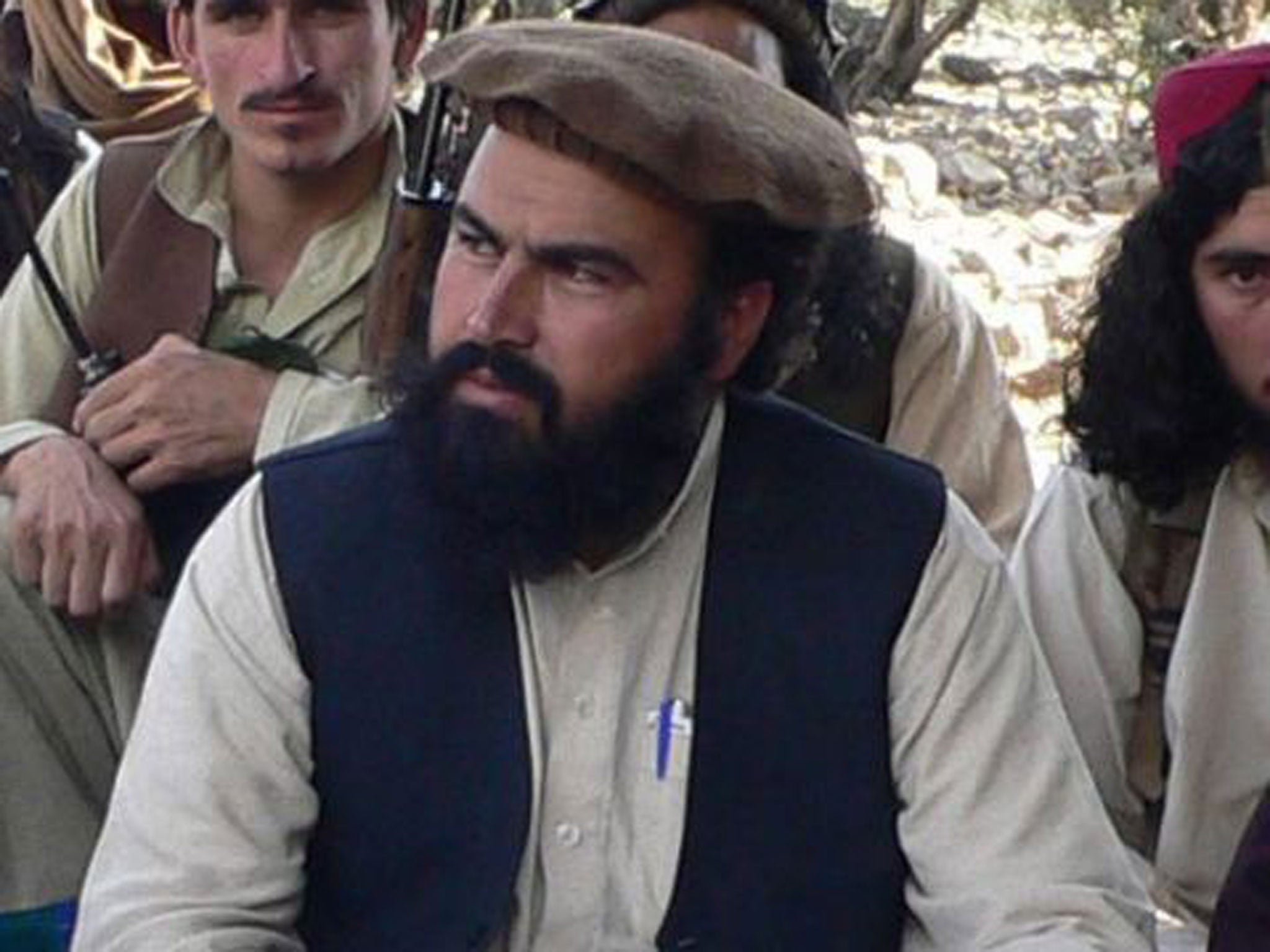
Your support helps us to tell the story
From reproductive rights to climate change to Big Tech, The Independent is on the ground when the story is developing. Whether it's investigating the financials of Elon Musk's pro-Trump PAC or producing our latest documentary, 'The A Word', which shines a light on the American women fighting for reproductive rights, we know how important it is to parse out the facts from the messaging.
At such a critical moment in US history, we need reporters on the ground. Your donation allows us to keep sending journalists to speak to both sides of the story.
The Independent is trusted by Americans across the entire political spectrum. And unlike many other quality news outlets, we choose not to lock Americans out of our reporting and analysis with paywalls. We believe quality journalism should be available to everyone, paid for by those who can afford it.
Your support makes all the difference.For much of his life, Wali ur-Rehman, the senior Taliban commander killed this week in a US drone strike, either studied or taught a conservative interpretation of Islam. Later he picked up the gun, persuaded that he needed to join an actual jihad.
The decision to take up arms apparently came in 2004, when he became associated with Taliban fighters in the South Waziristan tribal area of Pakistan. Five years later, following the death in August 2009 of the group’s leader, Baitullah Mehsud, also killed by a US drone attack, Rehman was among those competing to take over.
Reports in the Pakistani media at the time said such was the level of hostility between the various lieutenants, that Rehman shot a rival, Hakimullah Mehsud, who had been the spokesman of the slain leader. The reports were so widespread that Rehman and Mehsud felt the need to release video images of themselves sitting together talking.
As it transpired, Hakimullah Mehsud was appointed overall Taliban commander, while Rehman was made chief in South Waziristan and deputy leader.
Analysts say that Rehman’s handling of the fall-out of the leadership succession was typical of a man who looked to resolve problems and seek accord among the Taliban’s various factions and groups.
“He was bold, intelligent and had a cool manner,” said Mansur Khan Mahsud of the FATA Research Centre, an Islamabad-based think tank, whose staff interviewed Rehman. “He preferred to resolve differences through talks.”
He added: “He was also in favour of peace talks with the government. That is what he fell out about with Hakimullah Mehsud, who did not want to have talks.”
The killing of Rehman has added further complexity to the already deeply controversial issue of drone strikes in Pakistan. Given Rehman’s role in attacks not just on Western troops in Afghanistan but on Pakistani targets, many will be disinclined to publicly condemn the strike.
Yet there is widespread agreement that his killing will make negotiating with the Taliban considerably more difficult. In the aftermath of the attack, the Taliban said that it was withdrawing an offer of talks. Indeed, there are already many voices in Pakistan suggesting that the US targeted Rehman to intentionally scupper talks.
“In Pashtun society, if someone is killed as you are about to start negotiations, it means those negotiations are not going to happen for some time,” said the Peshawar bureau chief of a leading Pakistani newspaper.
The son of a man called Asmatullah, Rehman was born into a relatively middle-class family from the Mal Khel branch of the Mehsud tribe. He was the eldest of six children, including one brother who was killed by the Pakistani military in 2010 and another who was injured in this week’s drone attack.
Reports suggest that he attended the Jamia Islamia Imdadia seminary in the city of Faisalabad, west of Lahore, and graduated in Islamic studies in 1996. He then returned to the north-west and taught in a madrassa, or Islamic school, in the town of Kani Guram. He is said to have been a member of a faction of the Jamiat Ulema-e-Islam political group, headed by the religious scholar Fazal-ur-Rehman.
After joining the Taliban, Rehman – who is said to have had three wives and a number of children – reportedly took part in attacks on both Western forces in Afghanistan and Pakistani targets.
The Obama administration said that Rehman was involved in the killing of seven employees of the CIA and a Jordanian intelligence official in 2009. The intelligence officers were killed in a suicide bombing by an Al-Qaeda triple agent at Forward Operating Base Chapman in south-eastern Afghanistan. The attack was featured in the film Zero Dark Thirty, about the hunt for Osama bin Laden.
White House spokesman Jay Carney said Rehman had “participated in cross-border attacks in Afghanistan against US and NATO personnel and horrific attacks against Pakistani civilians and soldiers.” In 2010, Washington named Rehman as a “specially designated global terrorist” and placed a $5m bounty on his head. The Pakistanis also offered a reward for information that would lead them to him.
Although Rehman was made the head of Mehsud Taliban in South Waziristan, where he commanded some 7,000 to 10,000 men, he had shifted his base of operations to North Waziristan.
Rehman was killed in a strike involving two missiles fired from a drone that targeted a mud-built house in the village of Chashma, two miles east of Miranshah, the region’s administrative town.
It was the first such strike since Pakistan’s general election, which was won by a candidate who supported talks with the Taliban, and the first since President Obama announced new regulations about the use of drones.
Wali ur-Rehman, Taliban commander: born Pakistan 1970; died Chashma, North Waziristan 29 May 2013.
Join our commenting forum
Join thought-provoking conversations, follow other Independent readers and see their replies
Comments